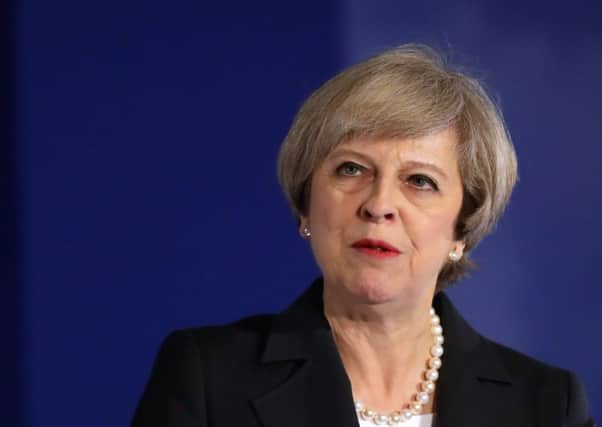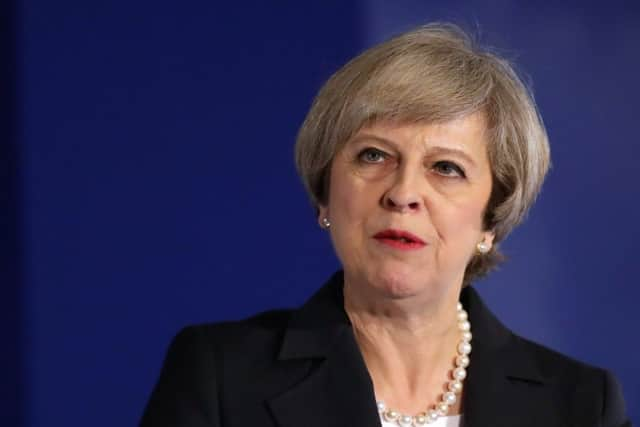Indyref2 not on the agenda as Theresa May arrives in Scotland


The Prime Minister will instead reject any constitutional changes that weaken the Union, and hold up the UK’s humanitarian work around the world as an example of the good that can only be achieved together.
The UK government has rejected Ms Sturgeon’s call for second independence referendum by spring 2019, before the UK leaves the EU, with Mrs May saying “now is not the time”.
Advertisement
Hide AdAdvertisement
Hide AdSources said talks between the two leaders would focus on plans to start the formal Brexit process on Wednesday, and that the Prime Minister would not discuss when a referendum might be permitted.


Mrs May will send a letter to EU leaders this week formally notifying them of the UK’s intention to trigger Article 50 of the Lisbon Treaty and quit the bloc following a two-year negotiation.
The Prime Minister’s visit will see her deliver a speech to staff at the Department for International Development’s base in East Kilbride, highlighting the work of UK civil servants based in Scotland.
She will also meet with senior officers from Police Scotland to discuss its counter-terrorism work.
The UK’s aid programme, which has a budget fixed by law at a UN target level of 0.7 per cent of GDP, “says something important about Britain,” the Prime Minister is expected to say.


“It says that we are a kind and generous country. It says that we are a big country that will never let down – or turn our back on – those in need. And it says that we are a country that does – and will always – meet our commitments to the world – and particularly to those who so desperately need our support.”
Making the link with Brexit, she will say: “I want to make it absolutely clear as we move through this process that this is not – in any sense – the moment that Britain steps back from the world.”
Mrs May will restate her commitment to building a “more united nation” as the UK leaves the EU amid growing disagreement about how powers returning from Brussels will be divided between Westminster and the devolved administrations.
Advertisement
Hide AdAdvertisement
Hide Ad“In Scotland, Wales and Northern Ireland that means fully respecting, and indeed strengthening, the devolution settlements. But never allowing our Union to become looser and weaker, or our people to drift apart.”
The Prime Minister added: “So in those policy areas where the UK government holds responsibility, I am determined that we will put the interests of the Union – both the parts and the whole – at the heart of our decision-making.”